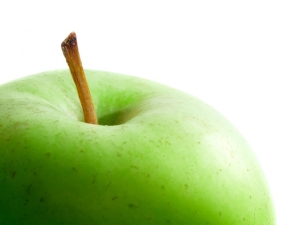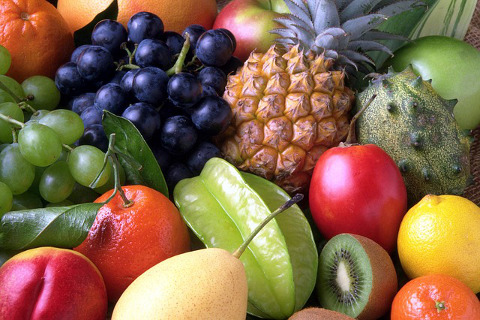Fortified foods and beverages for children are becoming mainstream as parents recognise the value that nutrition plays in their overall health.
Being a parent, you are the one who determines if your children get a good start in life. You want your children to experience the best that life has to offer. How to improve immune system in your child? How you help them to develop, and to achieve, can be the basis upon which it all starts. Like any parent, the health of your children is always your first priority. The basis of good health is good nutrition and it is the foundation for your child’s healthy development.
But what if you are having difficulty in getting your children to eat properly? Or, even if they eat well, you still want to make sure they have all the nutrition essentials.

Feeding your child can be one of the most gratifying or maddening experiences of parenthood. From those first tender nursing sessions to standoffs over broccoli to squeezing in meals between soccer games, the journey is rife with ups and downs. Mothers may go from one extreme of having a toddler who chomps on a large variety of vegetables and fruits and three big meals a day, to a picky eater who eats almost nothing. As any parent would agree, ensuring your child gets enough vitamins and minerals needed for growth and development is no easy feat.
Young children have the tendency to be extremely fussy about the foods they consume. The level of nutritional needs and opportunities for children at this age are high in the face of relatively small appetites.
These few years can be a difficult transitional stage for many parents as their child develops likes and dislikes in their consumption patterns that are shaped by their peers and what they see in the media. The importance of nutrition education is essential for parents so that they are able to make the right decisions as to what to feed their children.
Good Nutrition for Life
Nutrition and child development are two terms that go hand in hand. Good nutrition is essential for the physical and mental development of your child. Research shows that children who receive undernourished food are susceptible to a variety of diseases and disorders. Proper nutrition in childhood can reinforce lifelong eating habits that contribute to your child’s overall well-being and help them grow to their full potential.
Parents worry each time their child catches the sniffles. However, experts note that it is not at all unusual for the average child to have between five to seven episodes of the common cold during a typical year. This can easily be remedied with the maintenance of a well-balanced diet, in tandem with regular physical activity.
Scientists and health professionals constantly stress the need for good nutrition, and along with the abundance of health and wellness resources available on the web today, consumers are becoming more informed of the benefits of including healthy products in the diet.
Providing good nutrition to the body is an ongoing affair. There is a significant body of scientific evidence that has demonstrated the importance of good nutrition in maintaining a healthy immune system. In addition to its role in preventing infections, good nutrition helps to fight against diseases caused by vitamin and mineral deficiency.
Fuel for the Body

Vitamins and minerals make our bodies work properly. Although you get vitamins and minerals from the foods you eat every day, some foods have more vitamins and minerals than others. Whereas vitamins are organic substances (made by plants or animals), dietary minerals such as calcium, magnesium, potassium, sodium, iron, and zinc are chemical elements that are not produced by the body, and must be ingested daily through food.
Research suggests that deficiencies in nutrition can lead to behavioural, developmental, and health problems – everything from allergies and asthma to ADHD. Blood testing may reveal a severe nutrient deficiency but your child may still be missing out on nutrients without being clinically deficient. And it’s not just the super nutrients like omega-3 fatty acids, calcium, and vitamins C and A that kids need. Even if you get your child to eat, say, fish, broccoli, and carrots, there’s still a world of nutrients they may be missing.
Fiber-fortified soymilk. Cereal enriched with probiotics. Omega-3-fortified juice. You’ve likely seen these labels and more, popping up on kids’ foods at supermarkets. It’s not empty hype; as part of a balanced diet, nutritious add-ins are a simple way to ensure your child is well nourished. It is always best to get your nutrients from whole foods but there are circumstances where kids need supplemental nutrients.
Fortifying Foods with Essentials
Fortification is the addition of vitamins or minerals to foods, in addition to the levels that were originally found before the refining process. When foods or beverages are fortified, they will have more vitamins and minerals after they are refined than before.
“Food fortification is one of the most effective methods to ensure that your child fulfils his daily nutrient requirements” says Ms Simone Bouman, Market Unit Manager, Food Division of Purac Asia Pacific, a leading ingredient company.
Consider a beverage, such as soymilk, targeted at building healthy strong bones that is fortified with calcium, vitamin D and magnesium. Calcium is an essential mineral needed by the body for numerous functions, including building and maintaining bones and teeth, blood clotting, the transmission of nerve impulses, and the regulation of the heart’s rhythm. Vitamin D facilitates calcium absorption into the bones and is especially important for young children who are prone to bone fractures.
Iron is needed for the transportation of oxygen in the blood. Iron fortified foods or beverages can help prevent of iron deficiency that may cause anemia, fatigue and dizziness. Magnesium has a calming effect on the nervous system, and together with its muscle-relaxing role, it may help those leading a busy and highly stressful life.
The options parents have today are plenty. Being spoilt for choice allows them the freedom to explore different foods and beverages that are suitable for their child’s taste buds.
As Ms Bouman illustrates, “Foods fortified with minerals and vitamins can meet the needs of both the elderly and the young. Candies fortified with zinc, vitamin C and copper can help boost your child’s immune system.”
Boosting Immunity with Zinc
Along with calcium, magnesium and iron, zinc is probably the most important mineral to the human body. Zinc supports normal growth and development during childhood and promotes the maintenance of a healthy immune system. Zinc is known to reduce the severity and duration of colds and also contributes to better eye-hand coordination and reasoning in young children. It positively influences memory, muscle strength and endurance in adolescents and adults.
Zinc deficiency affects about a third of the world’s population and is not uncommon even in developed countries. Groups at a high risk of this disorder include infants and children, pregnant women and the elderly. The seriousness of the effects of zinc deficiency varies from diarrhoea, respiratory infections, skin problems, impaired cognitive function, learning disabilities and growth retardation.

Besides red meat and poultry, vegetables and fruits are excellent sources of zinc. Vegetables such as asparagus, brussel sprouts, corn, peas, potatoes and beans and fruits such as blackberries, raspberries and dates contain a significant amount of zinc. Then again, getting your child to explore these alternatives is often easier said than done.
From a nutritional point of view, a balanced diet requires no additional fortification. However, some people are not able to meet the recommended daily intakes and look for alternative ways to compensate for this deficiency. In this day and age, children are under immense pressure to excel in school, sports and other extra-curricular activities. It is hard to believe that as the pace of life increases, fewer people including young children are taking less time to sit down for traditional meals and this is a dilemma.
There should be no excuse for poor nutrition when there is a wide variety of convenience-oriented products available. New product innovations in terms of fortifying foods with the right amount of vitamins and minerals are tailored to meet the specific nutritional needs of children and adults.
Zinc Helps Fight Illnesses
The common cold is the most frequent infectious disease in humans. Unfortunately, there is no cure for the common cold or seasonal flu. Parents can prevent each by keeping your kids and your home’s germ hotspots clean and by boosting your child’s immune system, and for the flu, getting your child vaccinated yearly. But that probably won’t stop your child from catching a few colds and having a bout or two with the flu. So how can you treat your child’s case of the sniffles? How to improve immune system for your child?
The common myth parents hear is that you should feed a cold and starve a fever. The fact is, keeping your child well fed and hydrated is important for a speedy recovery from any illness.
Research has shown zinc effectively reduces the duration and severity of cold symptoms. Purac’s GLUCONALÒ ZN is a commonly used zinc source for the fortification of food and beverage products. Due to its mild flavour and excellent solubility, it is commonly used in lozenges for the treatment of common colds. So the next time your child catches the cold, try dispensing some zinc fortified lozenges for effective relief.
In addition to relieving the symptoms of the cold, zinc has also been found to provide beneficial results to the management of acute diarrhoea. The consumption of zinc fortified foods can significantly reduce the duration and severity of the illness. Studies have shown that zinc supplementation results in a 25% decrease in the duration of the illness.
Simply adding a bottle of zinc-fortified fruit juice or a bowl of mineral-fortified breakfast cereal in your child’s diet can go a long way in treating your child’s illnesses. Making the conscious effort of reading food labels and ensuring that products contain between 15 – 25 mg of zinc is an extra measure to be taken in ensuring the maintenance of a healthy immune system.
For a delicious taste experience, the selection of food for zinc fortification is critical. It is important for parents to choose food products that are consumed on a regular basis and that their child receives an adequate dose of zinc throughout their growing years.
“Advances in technology have made it possible to fortify a wide variety of foods with a broad range of nutrients without sacrificing taste and texture” says Ms Bouman. Consumers these days look for natural ingredients in labels to ensure that foods are free of chemical preservatives or additives known to be detrimental to health. “At Purac, we don’t just provide natural ingredient solutions for the production of nutritious and delicious foods and beverages, but we also provide solutions that target food safety, health, and shelf-life extension” she adds.
Today’s supermarket shelves carry an array of popular food products fortified with zinc such as breakfast cereals, pasta, bread and infant formulas. Zinc fortified beverages include dairy and soy-based beverages, fruit juices and energy drinks. These foods provide parents with the convenience and peace of mind, while ensuring that their child receives enough minerals without having to go through the frustrations of dealing with their little picky eaters.
By Ms Simone Bouman, Market Unit Manager (Food Division), Purac Asia Pacific
If you find this article useful, do click Like and Share at the bottom of the post, thank you.
Like what you see here? Get parenting tips and stories straight to your inbox! Join our mailing list here.
















































Leave a Comment: